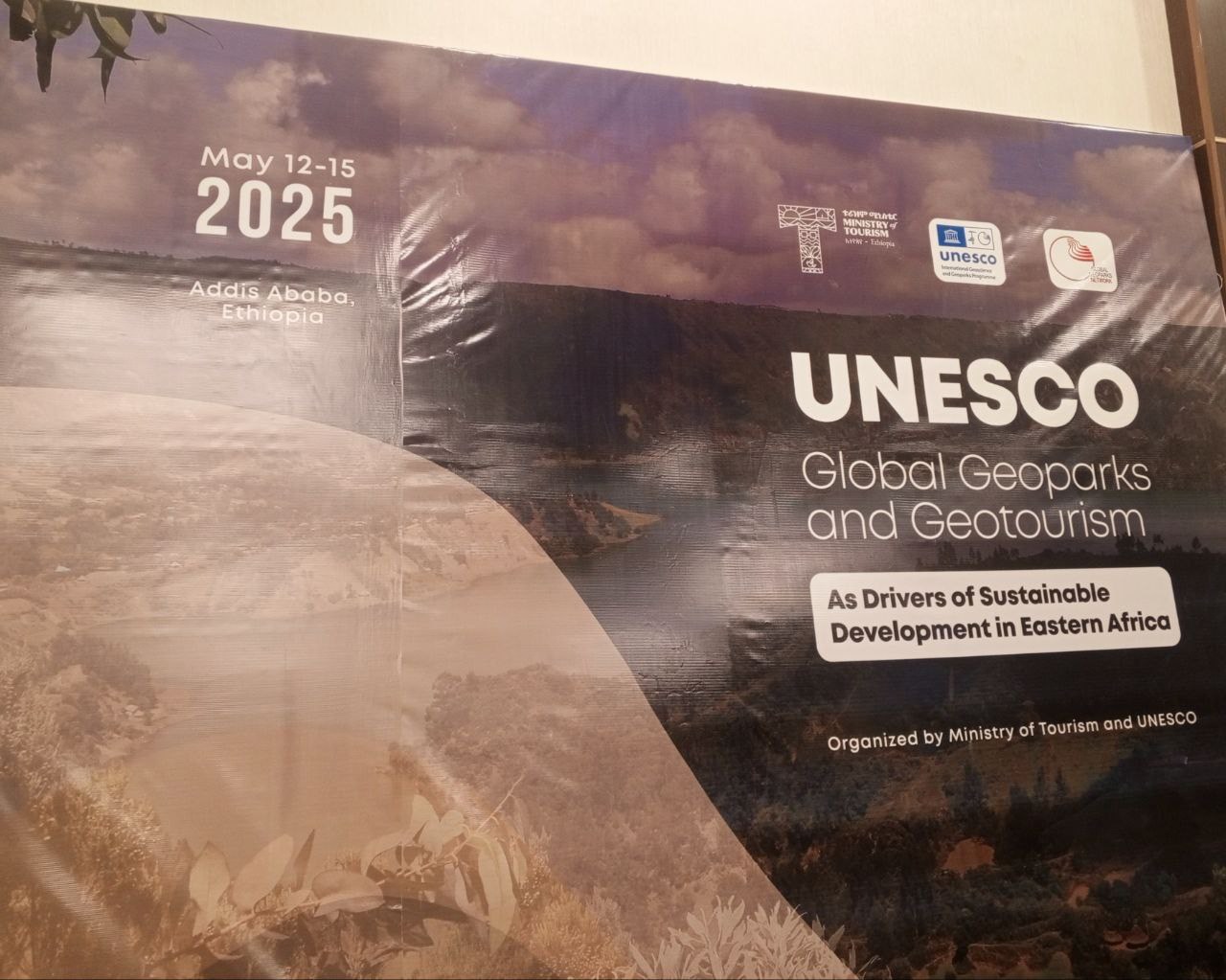Ethiopia, UNESCO Partner to Support Geotourism & Sustainable Dev’t in Eastern Africa - ENA English
Ethiopia, UNESCO Partner to Support Geotourism & Sustainable Dev’t in Eastern Africa

Addis Ababa, May 12, 2025 (ENA) -- The Ministry of Tourism has united hands with the United Nations Educational, Scientific and Cultural Organization (UNESCO) to Support Geotourism and Sustainable Development in Eastern Africa.
The Ministry of Tourism and UNESCO co-hosted a workshop in Addis Ababa entitled "The Role of UNESCO Global Geoparks and Geotourism for Sustainable Development."
The forum brought together senior-level attendees like Selamawit Kassa Minister of Tourism; Rita Bissonnette, Head of the UNESCO Liaison Office to the African Union, the Economic Commission for Africa, and Ethiopia; senior UNESCO personnel; regional representatives; and tourism, cultural, and administrative experts from across Eastern Africa.
Minister Selamawit emphasized Ethiopia's unique cultural and natural heritage, its ancient history spanning thousands of years, its various traditions, and landscape variation, anticipating collaboration with UNESCO towards the development of the region's geotourism potential.
Ethiopia currently boasts 12 UNESCO World Heritage Sites, six entries on the Intangible Cultural Heritage List, and five biosphere reserves, the minister added.
She noted that the geographic diversity of Ethiopia, from Simien Mountains National Park to the otherworldly Dallol Depression, offers breathtaking experiences for tourists, scientists, and adventurers alike.
"These breathtaking landscapes and spectacular geographic features satisfy a hunger for aesthetic beauty, scientific curiosity, and off-the-beaten-path experiences," she said, noting that Ethiopia is not just a patchwork of cultures, but a geodiversity paradise.
Capitalizing on Ethiopia's status as the "Cradle of Humankind," Selamawit emphasized the country's global significance in paleoanthropology, where sites which have yielded some of the most important fossil discoveries, yielding invaluable data on human evolution.
According to Selamawit, several sites in Ethiopia are of high potential to be designated as UNESCO Global Geoparks, a project which would significantly boost tourism, energize local economies, and provide employment opportunities.
The government's new tourism policy focuses on geoheritage protection and geotourism promotion as key pillars for sustainable development, she stressed.
Eastern Africa, boasting a rich geological heritage, from the Great Rift Valley to ancient fossil sites, has vast geotourism potential. But its condition of geoheritage conservation and geotourism development reflects trends in broader challenges confronting Africa's tourism sector, Selamawit added.
Greeting the delegates to Addis Ababa, often referred to as the diplomatic capital of Africa, Rita Bissonnette emphasized the importance of the workshop in promoting the application of UNESCO Global Geoparks and geotourism to enhance sustainable development for the region.
UNESCO Global Geoparks are much more than nature reserves. They are living laboratories and innovation hubs where nature, culture, science, and community intersect and through the geology's eyes, they tell the story of our world and allow local communities to build robust, inclusive economies on heritage, education, and sustainability," she added.
There are 229 UNESCO Global Geoparks in 50 countries and just two, M'Goun in Morocco and Ngorongoro-Lengai in Tanzania, Bissonnett informed the participants.
This relative lack of presence is not for lack of geology, the landscapes of Africa, ranging from fossil-filled basins to working volcanoes, are among the most spectacular to be found worldwide, she noted.
UNESCO underscored that the establishment of geoparks in Eastern Africa can provide an impetus for job creation, enhance local business, protect key geological and ecological areas, enhance sensitization of climate change and geohistorical heritage, and promote local cultures and identities.